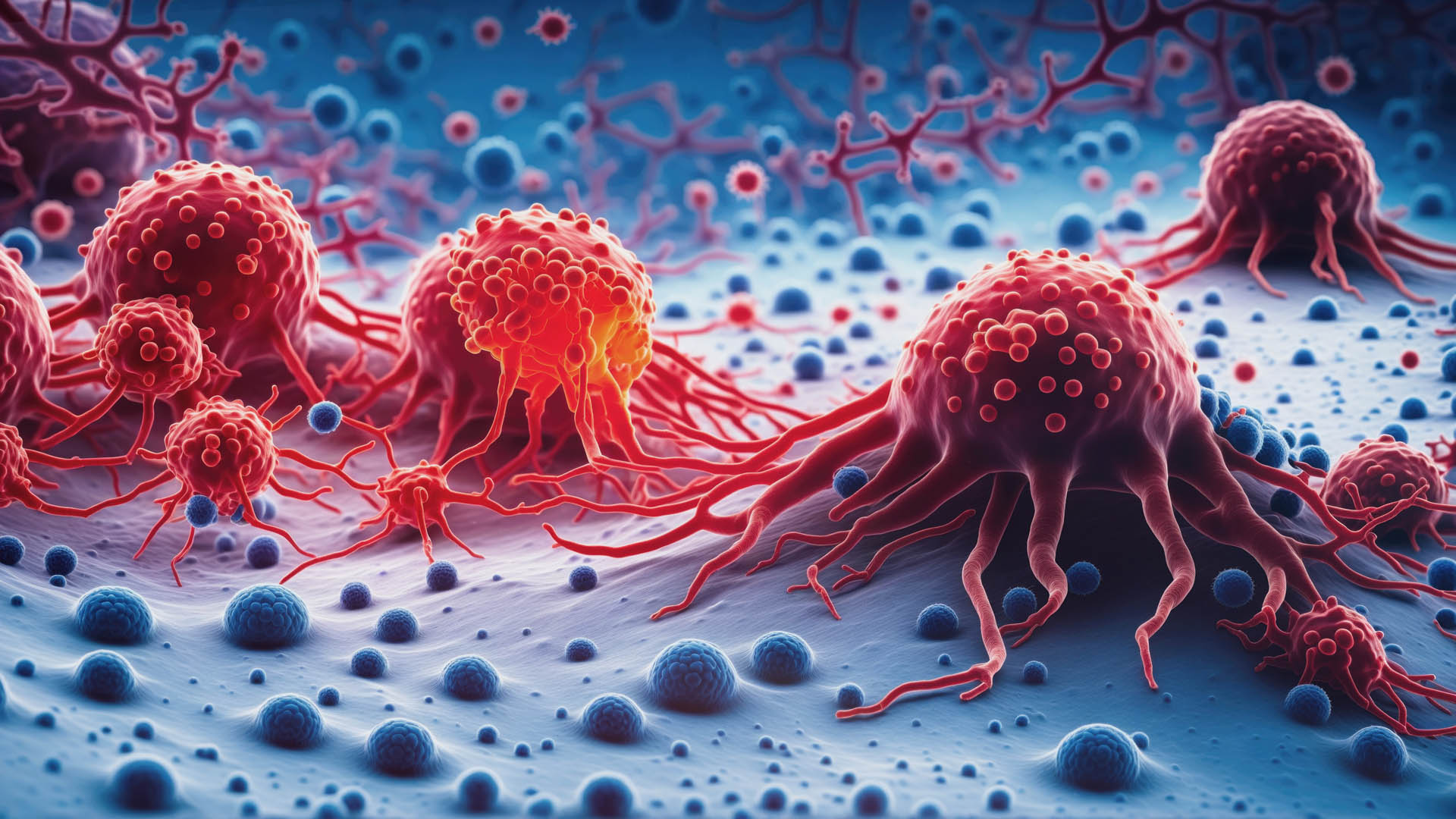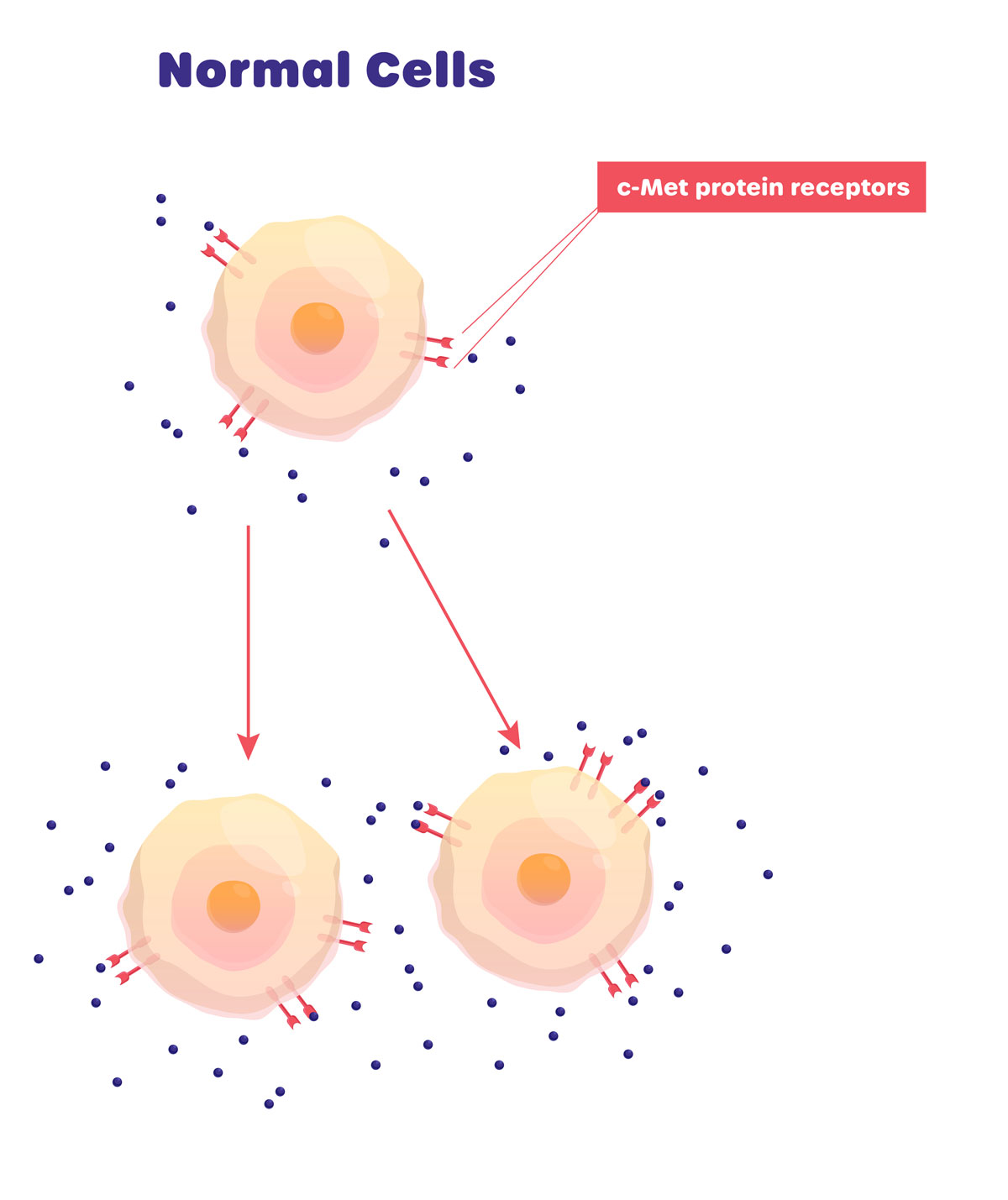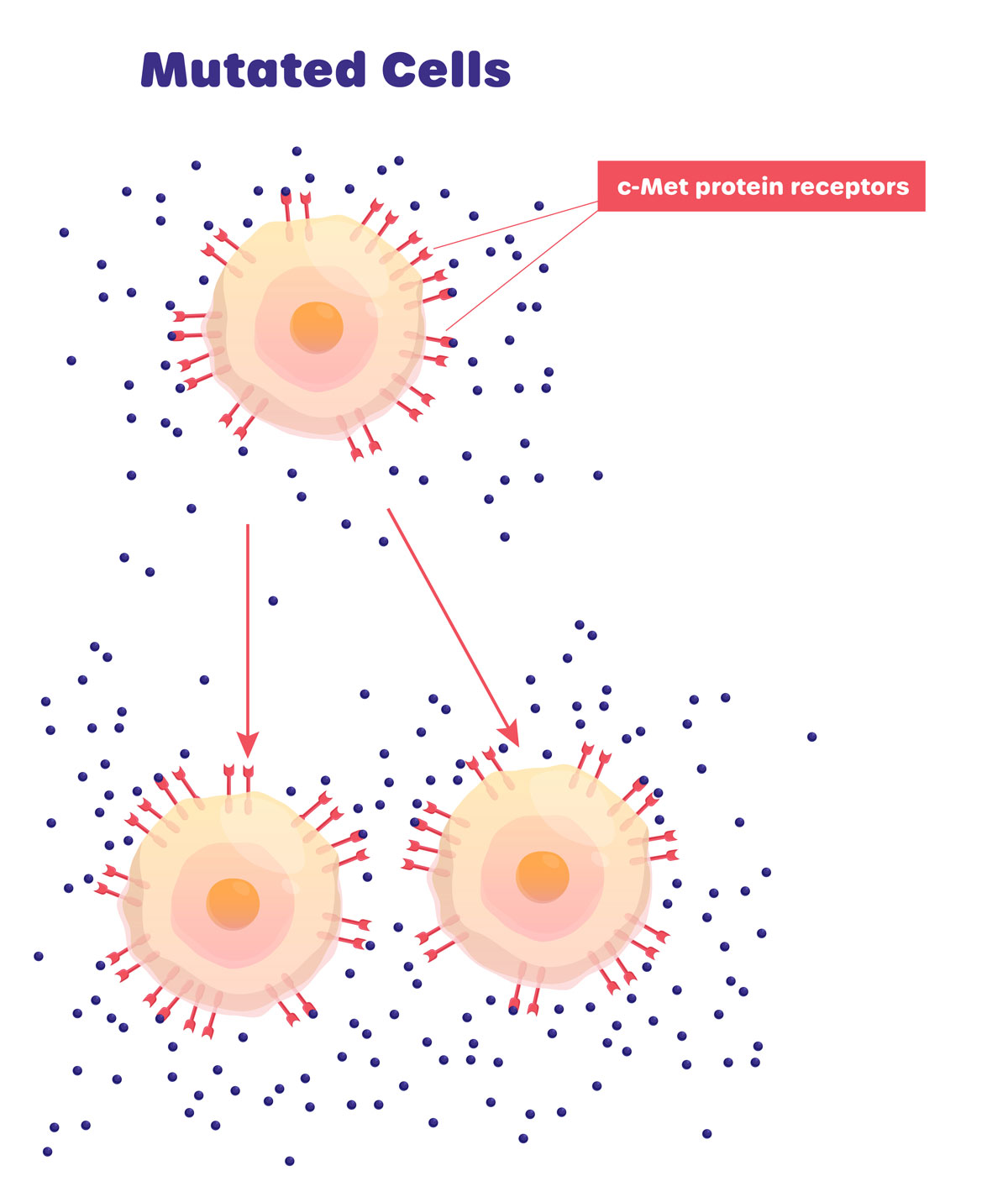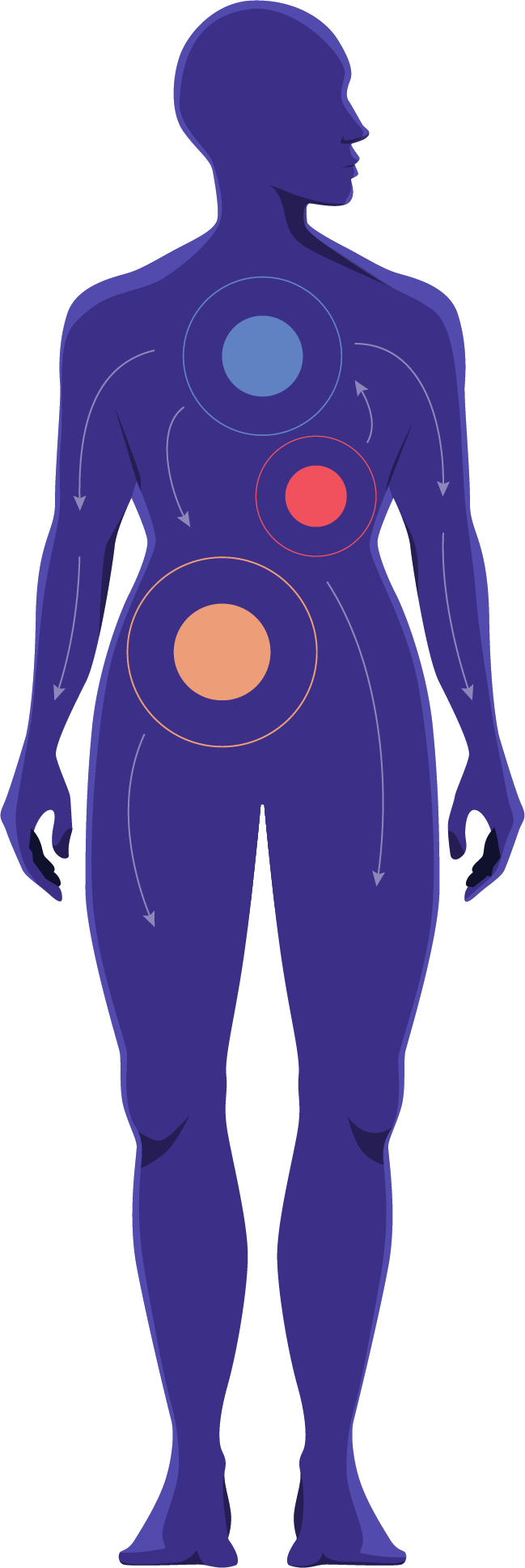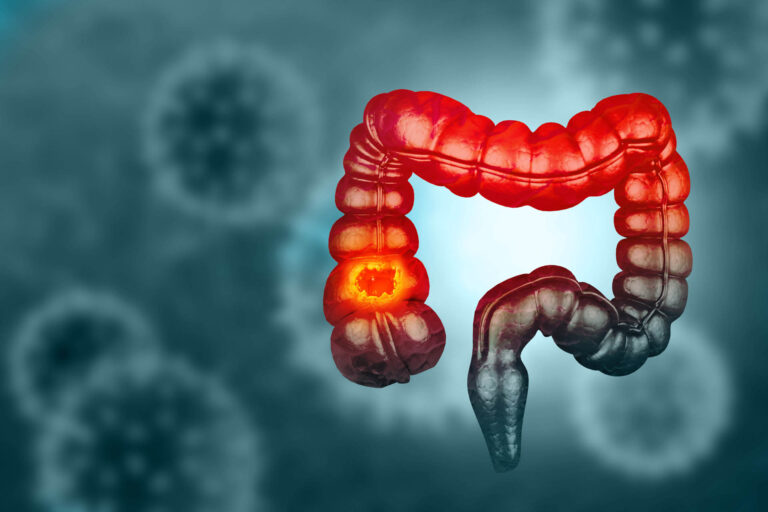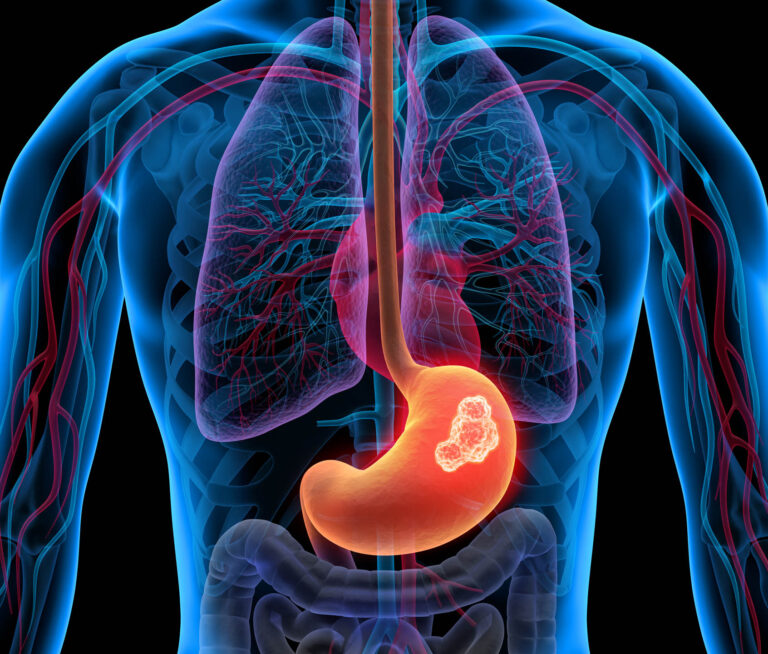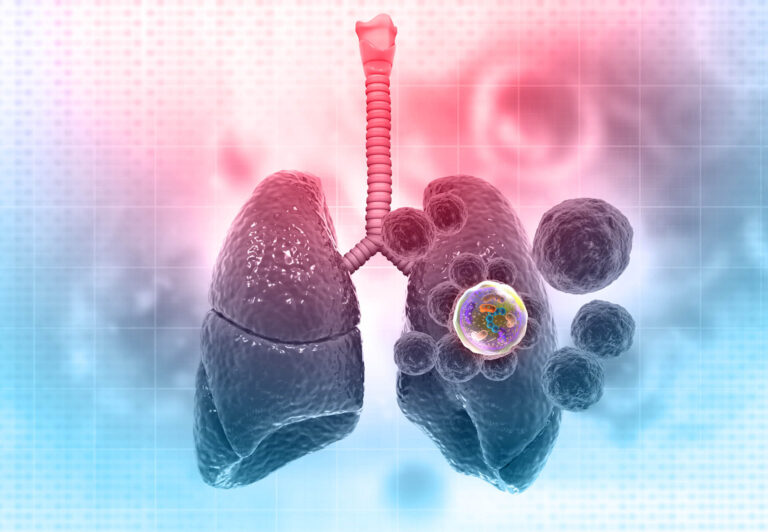An Expedition in Colorectal Cancer, Gastroesophageal Adenocarcinoma, and Non-Small Cell Lung Cancer
Colorectal cancer (CRC), gastroesophageal adenocarcinoma (collectively referred to here as GEA, which includes gastric, gastroesophageal junction, and esophageal adenocarcinomas), and non-small cell lung cancer (NSCLC) are all types of adenocarcinomas. An adenocarcinoma is a type of cancer that starts in the glands that line your organs.
The c-Met protein (also known as the MET protein) may be found on the surface of cells in solid tumors. Elevated levels of c-Met can cause cells to grow abnormally (in ways they aren’t supposed to), which can cause cancer or make it worse. This increased expression can be found in several solid tumors, including CRC, GEA, and NSCLC.
Cancer occurs when some cells in the body start growing uncontrollably and spreading to other areas. While healthy cells typically divide to replace old or damaged ones, damaged or abnormal cells continue to multiply instead of dying off as they should. This uncontrolled growth can lead to the formation of masses known as tumors, which may be either benign (non-cancerous) or malignant (cancerous).
Cancerous cells may continue to grow abnormally and may eventually spread to different body parts from where they started. This process is called metastasis.
Cancerous cells may continue to grow abnormally and may eventually spread to different body parts from where they started. This process is called metastasis.
Tab Content
This is a basic text element.
Tab Content
This is a basic text element.
